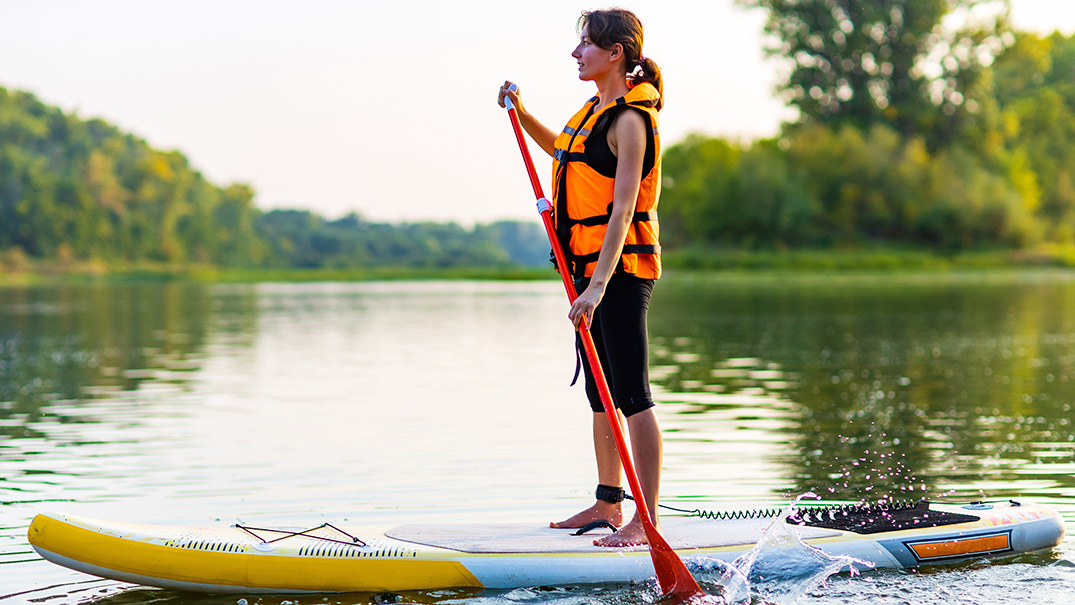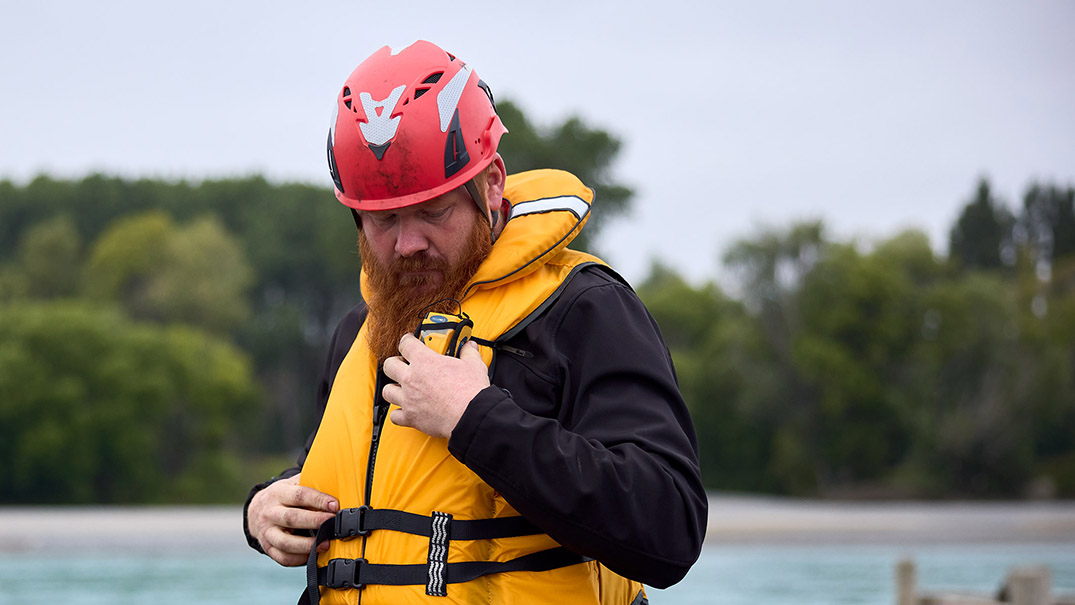
Stay safe on the water this summer
Waitaha/Canterbury is home to over 400 lakes. Many, such as Lake Ruataniwha, Lake Takapō/Tekapo, and Lake Aviemore are popular with campers, travellers, and boaties. While they are beautiful spots to enjoy, being out on the water comes with risks. Kia mataara: know the ways of the water, before you let go of the land.
On average 18 people die every year in recreational craft incidents in Aotearoa.
"This is a sobering statistic so it’s important we get safety to the forefront of people’s minds as they start to take to the water this summer period," says deputy Harbourmaster (Operations) Gordon McKay.
Stay safe on the water
The three risk factors most likely to cause death and injury on the water are:
- the failure to wear lifejackets
- an inability to communicate when an accident happens
- failure to check forecasts to avoid boating in bad weather and lake conditions.
Wear a fitted lifejacket
The Canterbury bylaw states that everyone onboard vessels under six metres (including kayaks and stand-up paddleboards) must always wear a lifejacket, even in calm conditions. You can still fall overboard and get into trouble even if you’re close to the shore.
On larger vessels, you need to make sure you have one suitable, fitted lifejacket for each person onboard.
People using stand-up paddleboards must always wear a lifejacket, even in calm conditions.
Make sure your lifejacket is fit-for-purpose
Standards for lifejackets have moved on since the days of kapok-filled, cotton-strapped lifejackets. Replace any lifejackets that have a kapok-filling or cotton straps, as these materials are no longer recommended or safe.
Crotch straps are required on children’s lifejackets, but are also a good idea for adults, as they prevent the lifejacket from ‘riding up’ if you fall overboard.
Take two waterproof forms of communication
Ensure you have two forms of communication that work in the area if you are heading out on the water. Cellphone reception can be unreliable, and VHF doesn't work well in inland lake areas such as Ruataniwha, Takapō/Tekapo, and Aviemore.
Alternatives to VHF radio in lake areas
Consider investing in a PLB (personal locator beacon) as your first choice of communication, as well as a secondary device such as a satellite communication device (like InReach and SPOT), flares, air horns, or torches.
"Many lake areas are remote, so let someone know your intentions, and what to do if you fail to check in by a certain time," Gordon says.
Check the forecast before you go
Pay attention to your environment and be sure to check the high country forecast for the area you’re boating in, the rural forecast, as well as the general weather forecast. Be prepared for the possibility that conditions may change quickly; they often do.
If there's a storm looming, a nor’wester wind or the conditions are set to deteriorate, stay on land.
"We have officers working at the lakes all through the summer, conducting safety checks and ensuring people are acting in a safe manner.
"If you see our people at the boat ramp or on the water, come and say hi – we are always happy to help you with local knowledge and answer your boating safety questions," Gordon says.
Royal New Zealand Navy and Harbourmaster partnership
This summer, our Harbourmaster’s Office and the Royal New Zealand Navy have begun a trial to work together patrolling popular waterways for the next 12 months.
Trained Navy staff along with a RHIB and trailer will be out working with our Harbourmaster to patrol key river and lake hotspots such the Waimakariri River, Kaiapoi River, and Lake Ruataniwha.
"The aim of this partnership is to support all-of-government activities in coastal and inland waterways where practical, especially during civil defence events, where increased maritime capability is required," says Commander Clive Holmes, Regional Naval Officer (RNO) Canterbury.
It is hoped that these regular boat patrols will encourage safer boating behaviour such as wearing a lifejacket and maintaining a safe speed at all times.
"Unfortunately, we have seen serious boating accidents in Canterbury already this summer. These accidents highlight the importance of boating within your capability and watching your speed," says Gordon.
Learn more about safer boating at Maritime NZ's Safer Boating website.


